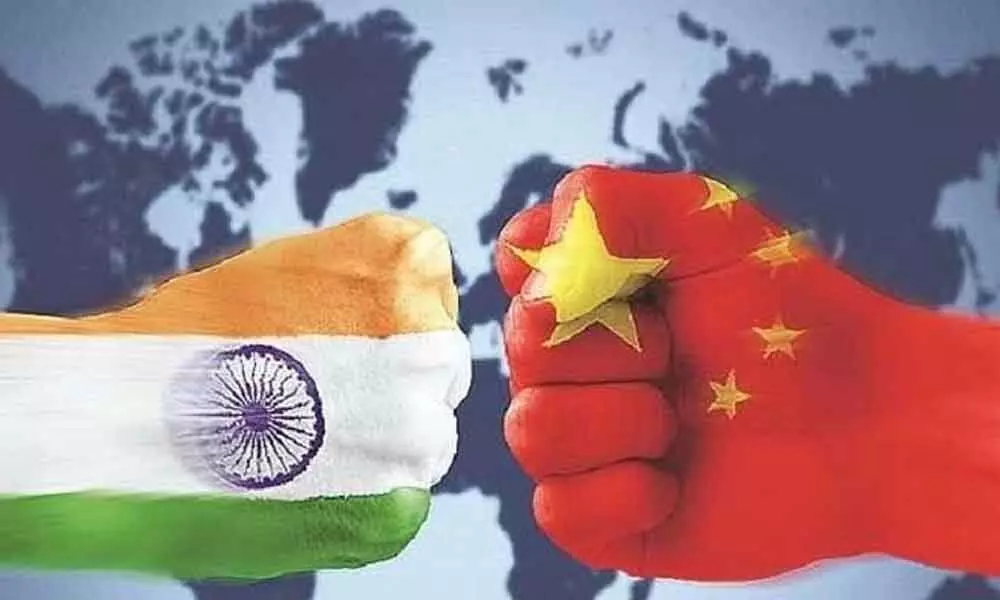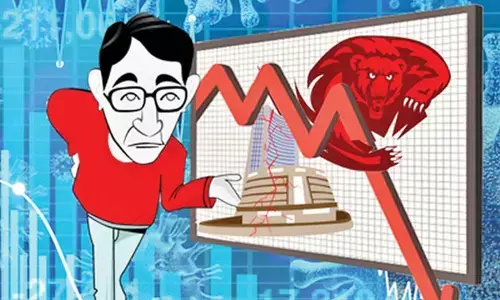Is there any economic sense in banning Chinese products?

Is there any economic sense in banning Chinese products?
It’s better for India not to allow border conflict to seep into economic space if it wants to emerge as global economic power
Prime Minister Narendra Modi did it again. Yeah, you heard it right. Known for his tactical and swift moves, NaMo, as Narendra Modi is fondly known, chose Nimo, a forward military base near Leh in Ladakh, to send a strong message to China though he did not name the belligerent communist country openly.
His surprise visit on Friday to the military base at a height of over 11,000 ft on the banks of the Indus River in Himalayas, and his eloquent address to soldiers there carried three distinct messages. Firstly, by saying that the age of expansionism is over, he has made it clear that India has no expansionist tendencies.
By saying that brave Indian soldiers are always ready to protect the territorial integrity of the country, he has made it amply clear that India will teach a befitting lesson if any country enters its territory. Lastly, he has said that this is the time for development, not for geographic expansion.
That means economic development will get top priority under his dispensation, nothing else. Modi's strong message on the development assumes significance in the wake of growing demand in the country for the banning of Chinese products and imports after India's border conflict with China in Galwan Valley in Ladakh claimed the lives of 20 brave Indian soldiers on June 15.
But should India allow its border conflict with China to seep into the country's economic space? Absolutely not. The Modi government has set itself a big target. It wants to nearly double the size of the Indian economy to $5 trillion by 2024-25 from $2.75 trillion in FY19. That is a tough target indeed. With Covid-19 pandemic crippling the economy, this target will become tougher now.
And India should forget the target if the border conflict with China escalates and lasts longer. The conflict will have other far-rea ching ramifications as well. It seems China has an economic strategy in its belligerence on the border with India. It is a well- established fact that the deadly Covid-19, which has been ravaging the world for the past several months, has its roots in China.
So, anti-China sentiments are on the rise globally and there has been talk of companies shifting their bases out of China, the world's factory. The communist country knows that India, given its abundant human resources, will emerge as the best alternative if companies moving out of China look for a cheaper destination.
Sensing this mood, the Indian government and some regional leaders also upped the ante to lure investors and companies which are ready to shun China. This narrative has taken a backseat in recent weeks in the wake of the China-India conflict taking centre stage.
Companies in China may not hasten their exit plans as long as tension prevails in this region. Instead, they will stay put in China. That's what the communist country wants. If India escalates its border tensions with China, our country will stand to lose more while China will stand to gain more on the economic front.
India should not fall into this trap and put its slowing economy on perilous turf at this key juncture when Covid-19 has raised its ugly head and infections are rising by the day.
In a similar vein, the banning of Chinese products and imports will also have serious implications for the Indian economy. Though there is nothing wrong in banning products or equipment which is of strategic nature, blanket ban on Chinese products will harm India and Indian people more.
It is the poor in India who buy Chinese products because they are available at cheaper prices. Even a large section of India's middle class can't afford smartphones if Chinese brands are taken out of the Indian market. How many Indians have the money to buy iPhones? Salaries and wages offered in India are the lowest in the world for the same work owing to the ever depreciating Indian rupee.
In that context, it doesn't make any economic sense to deny India's poor access to cheaper Chinese products without making alternative supply sources available locally or from other countries.
Chinese companies supply products at cheaper prices because they operate at economies of scale and supply to the world. That capability can't be achieved overnight in India. Our country needs years of planning and rigorous execution of strategies to achieve it.
Further, banning Chinese brands is not as simple as it sounds. It's a very complex issue. Most of Chinese smartphone brands being sold in India are made in India. Samsung smartphones, Apple iPhones which are on sale in India are made in China. Swedish luxury carmaker Volvo Cars is owned by a Chinese company. Several Chinese investors poured billions of dollars into Indian startups.
As China is the world's factory, most of the products India imports from around the world are made with components sourced from China. Hyderabad's pharma sector heavily relies on China for active pharmaceutical ingredients (API) used for manufacturing life-saving drugs. Critical equipment used by many of Indian industries is imported from China.
That is reason why India's import bill from China stood at a staggering $65.1 billion, while exports from our country were at a low $16.6 billion in FY20. Can this scenario be changed overnight?
So, emotional outbursts take India nowhere. We need to remember that emotions and economics are divergent in nature. If India wants to become a world's economic and political superpower, it should devise long-term strategies and implement them effectively. India already has several plus points. Our country is a leader in technology thanks to its achievements in the software domain.
India is also a dominant global player in pharmaceuticals. But the fact of the matter is that the Indian government has minimal role in these twin monumental achievements. So, the Indian leadership should at least leverage achievements in these key economic domains, and should try to become more stronger in them.
Further, India should evolve an effective strategy to emerge as an alternative to China in manufacturing over next 10-15 years. With dominance in technology and manufacturing, India can easily outsmart China and emerge as a global economic power in the next two decades. That'll be the befitting lesson to our communist neighbour. So, it's time for India to think long term.
Also, we need to remember that the military is meant to protect any country's territorial integrity. Our Indian military forces are strong enough to tackle any aggressive moves from their Chinese counterparts. Let's leave the task of protecting our territory to our efficient armed forces as we focus on our economy. That's what astute people do!








